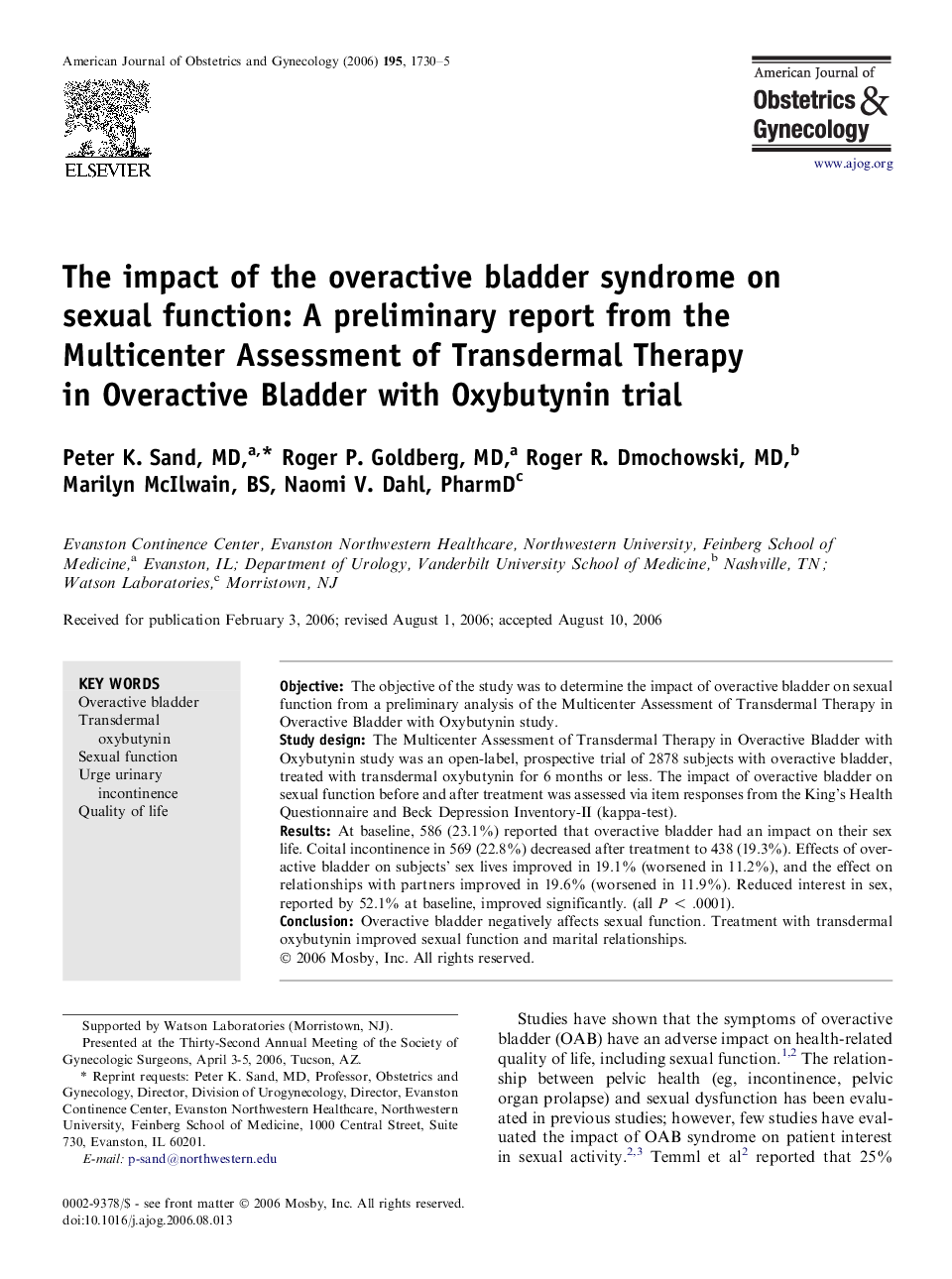| Article ID | Journal | Published Year | Pages | File Type |
|---|---|---|---|---|
| 3442453 | American Journal of Obstetrics and Gynecology | 2006 | 6 Pages |
ObjectiveThe objective of the study was to determine the impact of overactive bladder on sexual function from a preliminary analysis of the Multicenter Assessment of Transdermal Therapy in Overactive Bladder with Oxybutynin study.Study designThe Multicenter Assessment of Transdermal Therapy in Overactive Bladder with Oxybutynin study was an open-label, prospective trial of 2878 subjects with overactive bladder, treated with transdermal oxybutynin for 6 months or less. The impact of overactive bladder on sexual function before and after treatment was assessed via item responses from the King's Health Questionnaire and Beck Depression Inventory-II (kappa-test).ResultsAt baseline, 586 (23.1%) reported that overactive bladder had an impact on their sex life. Coital incontinence in 569 (22.8%) decreased after treatment to 438 (19.3%). Effects of overactive bladder on subjects' sex lives improved in 19.1% (worsened in 11.2%), and the effect on relationships with partners improved in 19.6% (worsened in 11.9%). Reduced interest in sex, reported by 52.1% at baseline, improved significantly. (all P < .0001).ConclusionOveractive bladder negatively affects sexual function. Treatment with transdermal oxybutynin improved sexual function and marital relationships.
